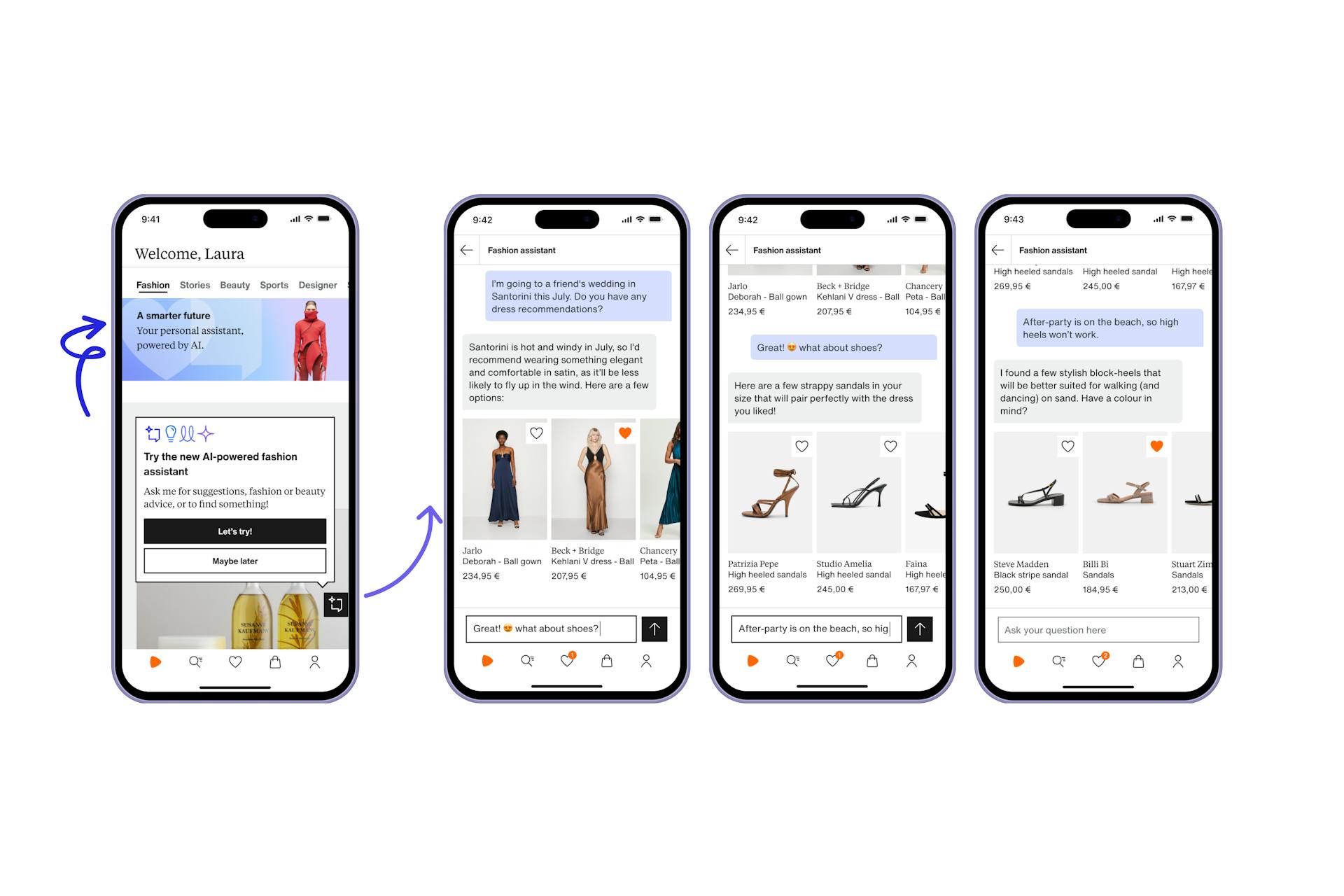Revolutionizing Ecommerce Marketing With Artificial Intelligence
Artificial Intelligence (AI) is more than a trendy buzzword; it's a game-changer for Ecommerce marketing. For advertisers, Ecommerce entrepreneurs, and influencer marketers, understanding how AI impacts the industry can unlock new potential and drive unprecedented growth. This article explores the multifaceted role of AI in Ecommerce, providing actionable insights for implementing AI in your business. We'll cover how AI-driven strategies can help personalize customer experiences and create growth opportunities. We'll also showcase real-world cases exemplifying AI successes and offer predictions for the future of AI in Ecommerce marketing.
Introduction to AI in Ecommerce Marketing
From chatbots to recommendation engines, Artificial Intelligence is increasingly integrated into Ecommerce platforms and is reshaping the Ecommerce landscape. By leveraging AI technologies, businesses can enhance the user experience, streamline operations, optimize marketing efforts, and boost profitability. For marketers and Ecommerce entrepreneurs, understanding and using these tools effectively is essential for maintaining their competitive edge.
 AI for customer experience.
AI for customer experience.The Role of AI In Personalizing Customer Experiences
Consumers have come to expect tailored content, so personalization is no longer an option—it's a necessity. AI makes this possible for Ecommerce businesses by quickly interpreting vast amounts of data and providing customers with a bespoke user experience.
Enhancing the User Experience
AI algorithms can rapidly review consumer behavior and preferences to deliver individualized content. Whether recommending products based on previous purchases or tailoring email campaigns, AI helps Ecommerce companies ensure each customer feels valued and understood.
Real-Time Personalization
Unlike traditional methods, AI can offer real-time customization. For example, AI can adjust website content dynamically based on a visitor's behavior, enhancing the overall user experience and increasing the likelihood of conversion.
Data-Driven Insights
AI doesn't just personalize; it provides valuable insights. By analyzing customer data, AI can identify trends and patterns that assist businesses in making informed decisions about everything from product development to marketing strategies.
 An image demonstrating business growth with a rocket.
An image demonstrating business growth with a rocket.AI-Driven Strategies for Ecommerce Growth
AI technology offers a range of tools to drive Ecommerce growth, including automated email marketing, dynamic pricing, chatbots, and recommendation engines.
Automated Email Marketing
Email marketing remains a powerful tool for Ecommerce businesses to reach customers and keep them informed. Automated AI-driven email campaigns can segment audiences more effectively, customize content, and optimize send times to maximize engagement. For example, a clothing retailer might use AI to send individual recommendations based on a customer's browsing history, resulting in higher open rates and conversions.
Dynamic Pricing With AI
Effective pricing strategies are vital to an Ecommerce business's success. AI algorithms can enable dynamic pricing, adjusting real-time rates based on demand, competition, and other factors. This strategy ensures that an Ecommerce company offers competitive pricing while maximizing profit margins. For example, an online electronics store could use AI to lower prices during slow periods and increase them when demand spikes, optimizing revenue.
Chatbots For Customer Service
Excellent customer service is critical for long-term retention in Ecommerce, and AI-powered chatbots can be a valuable addition to any team. Chatbots can handle many queries, providing instant responses that improve customer satisfaction and free up human agents for more complex issues. For example, a beauty retailer might use a chatbot to answer common questions about product ingredients, shipping times, and return policies, ensuring quick and accurate responses.
AI-Powered Recommendations
AI recommendation engines interpret user behavior to suggest products they will likely purchase. This feature improves the shopping experience, increasing average order value and customer retention. For example, a bookstore might use AI to recommend new releases based on a customer's reading history, encouraging additional purchases.
 An AI chat bot conversing with a website user.
An AI chat bot conversing with a website user.Case Studies Real-World Examples of AI Success in Ecommerce
Understanding the impact of AI in Ecommerce marketing is best illustrated through real-world examples. The following case studies from Amazon, Starbucks, and ASOS showcase successful AI implementations that helped spur growth and improve the customer experience.
Amazon's Recommendation Engine
Amazon's recommendation engine is a prime example of AI in action (no pun intended). By analyzing browsing and purchase history, Amazon offers customers bespoke recommendations, which account for a significant portion of its revenue.
Starbucks' Personalized Marketing
Starbucks uses AI to add a personal touch to its marketing efforts, including targeted promotions and customized offers. AI uses customer data to create individualized marketing strategies that increase engagement and loyalty.
ASOS' Virtual Assistant
Online fashion retailer ASOS implemented an AI-powered virtual assistant to assist customers with size recommendations and style advice. This strategy has led to improved customer satisfaction and reduced return rates.
 Asos' AI personal assistant feature.
Asos' AI personal assistant feature.A Brief Analysis of the Future of AI in Ecommerce Marketing
As technology advances, AI will become integral to Ecommerce strategies, and the future of AI-driven Ecommerce marketing is both exciting and promising
There are several areas where Artificial Intelligence is a value-add for Ecommerce businesses, including (but not limited to):
Predictive Analytics
AI-powered predictive analytics will enable Ecommerce companies to anticipate customer needs and trends. These data will allow for more proactive marketing strategies, ensuring these businesses stay ahead of their competition.
Enhanced Customer Interactions
AI will continue to improve customer interactions through advanced chatbots and virtual assistants. These tools will become more intuitive and capable of handling complex queries, enhancing the overall customer experience.
Integration With Emerging Technologies
AI will increasingly integrate with other emerging technologies, such as augmented reality (AR) and virtual reality (VR). These integrations may create more immersive shopping experiences that help drive engagement and sales.
 Customers interacting with an AI chat bot.
Customers interacting with an AI chat bot.Actionable Insights For AI in Ecommerce
AI is revolutionizing Ecommerce marketing, offering tools and strategies that personalize the user experience, optimize marketing efforts, and drive growth.
There are a few actionable insights you should consider when implementing AI into your Ecommerce business.
- Start Small: Implement AI tools incrementally to understand their impact and adjust as needed.
- Focus on Data: To maximize the benefits of AI, ensure that you have robust data collection and analysis processes.
- Stay Updated: Keep up-to-date with AI technologies and trends to maintain your competitive edge and ensure your company remains relevant.
Conclusion
AI-driven strategies can offer significant advantages, including enhanced customization, automated email marketing, dynamic pricing, improved customer service, predictive analytics, and integration with other emerging tech. By understanding and harnessing the power of AI, Ecommerce marketers and entrepreneurs can transform their businesses by offering better experiences that lead to growth and success.



